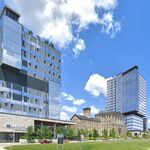Road tolls, but EVERYONE should pay for the roads, not just 905 ppl. And the tolls collected MUST go to a specific account that can only be used for transit, and cannot be used for anything else by any means.
If you're going to charge people, make sure you have tangible improvements to offer them, hence make sure the money is consistently going towards transit and actually improving peoples' commutes rather than having the road toll as just another ordinary tax that gets spread amongst all the services.
Drivers don't want to pay for Little Johnny's baseball games...BUT they DO want to pay to get more cars out of their way.The government has to portray the toll as an investment into better commutes, rather than a tax or levy.




